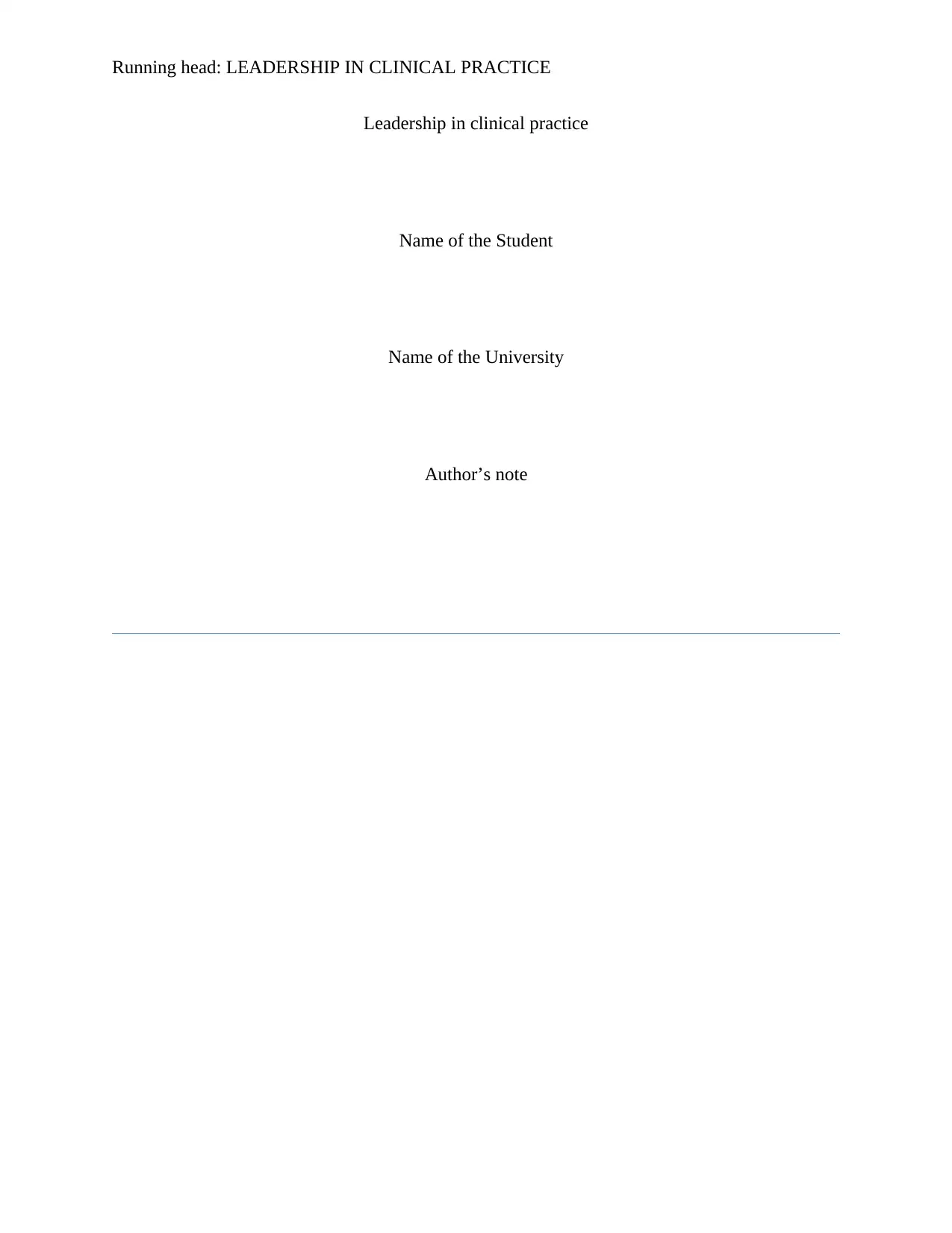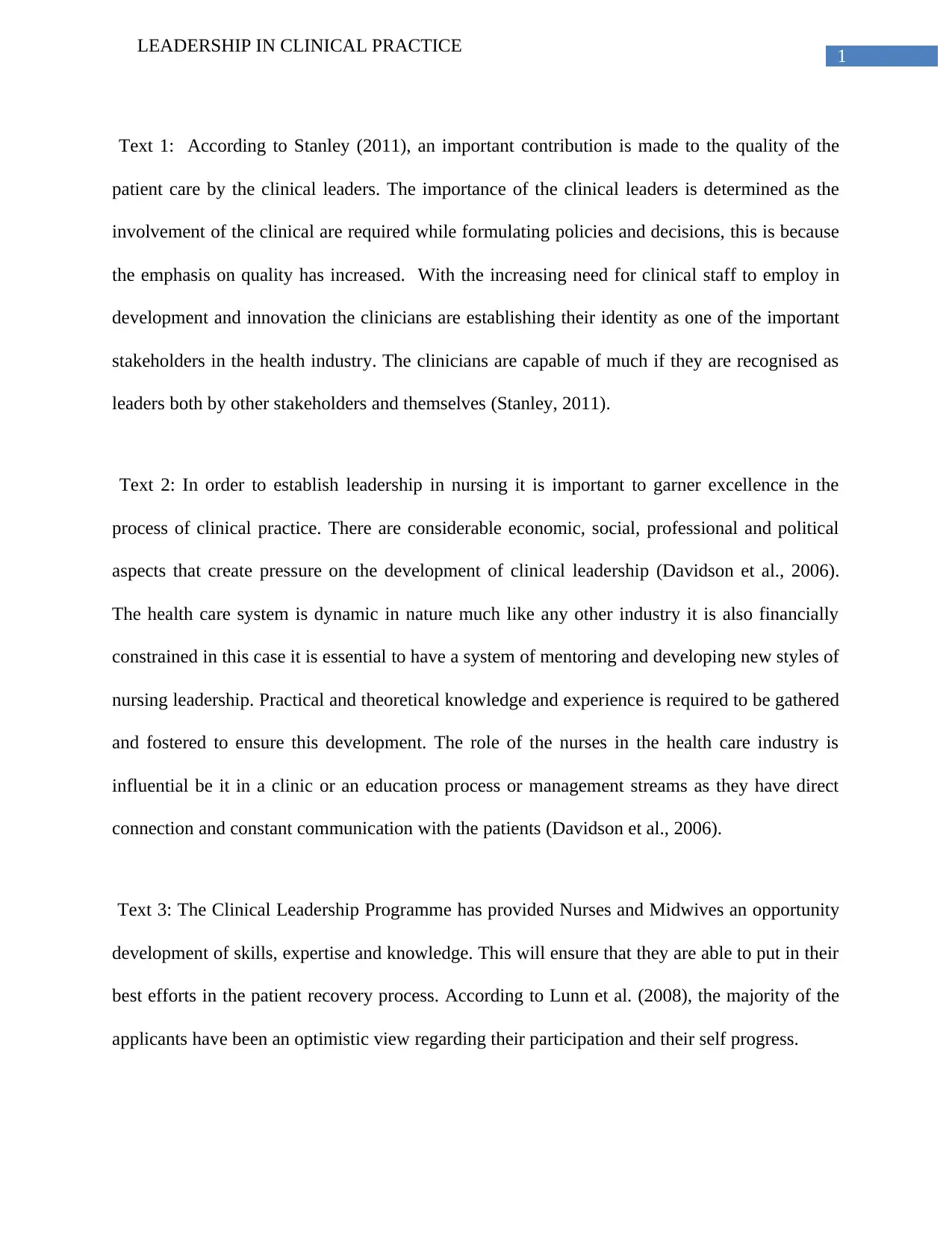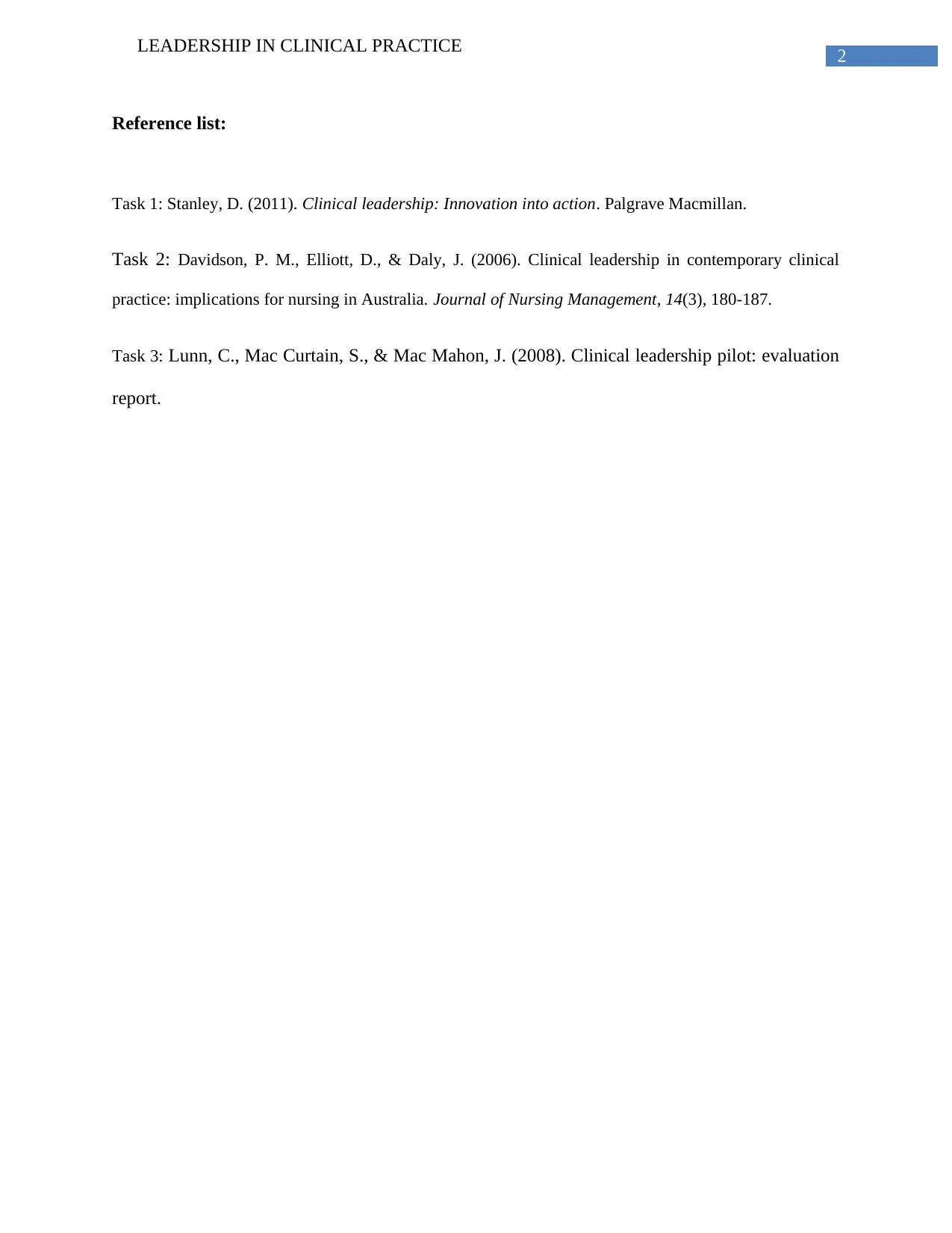The Role of Leadership in Clinical Practice Report
VerifiedAdded on 2021/04/21
|3
|458
|25
Report
AI Summary
This report examines the critical role of leadership in clinical practice, drawing from key sources such as Stanley (2011), Davidson et al. (2006), and Lunn et al. (2008). It highlights the importance of clinical leaders in shaping healthcare policies, improving patient care quality, and fostering innovation within the nursing profession. The report underscores the need for nurses to develop leadership skills, emphasizing the influence of nurses in clinical settings, education, and management. Furthermore, it discusses the Clinical Leadership Programme's impact on enhancing the skills and knowledge of nurses and midwives, ultimately contributing to improved patient outcomes. The report also analyzes the economic, social, and political factors influencing clinical leadership development and the need for mentoring within the healthcare system. The report concludes by summarizing the necessity of practical and theoretical knowledge in fostering effective leadership within the healthcare environment.
1 out of 3










![[object Object]](/_next/static/media/star-bottom.7253800d.svg)